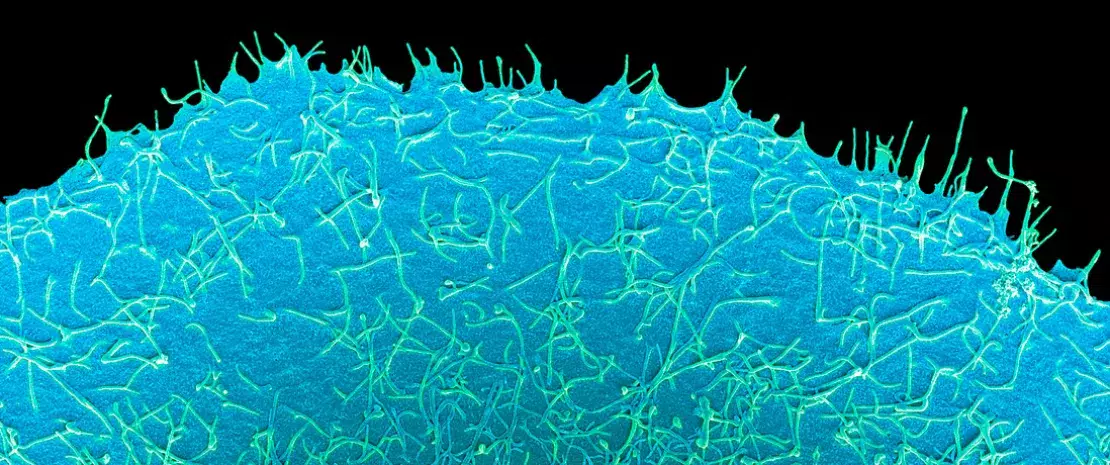Aspirin: antibiotic effect in colorectal cancer?
Known for its anti-inflammatory effects, aspirin also acts as an antibiotic on certain bacteria involved in colorectal cancer. It may even prevent tumorigenesis, both in vitro and in vivo.
Lay public section
Find here your dedicated section
Sources
This article is based on scientific information

About this article
There is increasing understanding of the clinical correlations and potential mechanistic roles of specific members of the gut and tumoral microbiota in colorectal cancer (CRC) initiation, progression, and survival. Despite this, we are still a long way from defining microbially-informed diagnostic, preventive, or therapeutic approaches. However, a step forward has just been made, with a team recently showing that aspirin, a chemopreventive agent recommended by the
(sidenote:
United States Preventive Services Task Force
An independent, volunteer panel of US experts in disease prevention and evidence-based medicine.
)
for the prevention of CRC, has specific effects on
(sidenote:
Fusobacterium nucleatum
Increased presence in human colonic adenomas and CRCs, responsible for tissue proliferation in vitro and in animal models.
)
, a bacterium associated with this disease.
In vitro and in vivo effect
US researchers have recently shown that aspirin disrupts the growth of the Fn7-1 strain of F. nucleatum, and even kills it, in vitro, in human colonic adenoma tissue cultures. At levels that do not inhibit bacterial growth, aspirin influenced the gene expression of Fn7-1: 55 genes were upregulated and 155 genes downregulated.
To assess aspirin’s role as a modulator of F. nucleatum growth, the researchers also conducted in vivo experiments. In a murine model, Fn7-1 was orally inoculated daily to induce an intestinal tumor, but mice receiving an aspirin-enriched diet saw inhibited tumorigenesis when compared to those on a normal diet. The protective effect of aspirin was also found with other strains of F. nucleatum, including some isolates from human CRC tissues, the latter proving more sensitive than the Fn7-1 strain. Conversely, this protective effect was much milder with other CRC-associated microbes, such as enterotoxigenic Bacteroides fragilis and colibactin-producing Escherichia coli.
Lastly, a
(sidenote:
Quantitative PCR
Specific PCR (polymerase chain reaction) method used to measure the initial quantity of DNA.
)
performed on adenoma DNA samples of patients taking aspirin daily showed a 2 to 3-fold lower fusobacterial abundance than in samples taken from control patients. This result suggests that the modulatory effect observed in vitro also occurs in humans.
Antibiotic effect in addition to anti-inflammatory effect
These data confirm the direct antibiotic effect of aspirin on strains of F. nucleatum. Its protective effect against colorectal cancer and adenomas thus exceeds its anti-inflammatory role. Consideration of the potential effects of aspirin on the microbiome holds promise in optimizing risk-benefit assessments for the drug’s use in CRC prevention and management. However, it is unlikely that the anti-inflammatory effects of aspirin alone are enough to stop tumorigenesis in its entirety. Further research is required before its use to improve the prognosis of CRC – the second leading cause of cancer death worldwide – can be considered.







